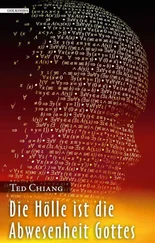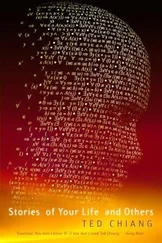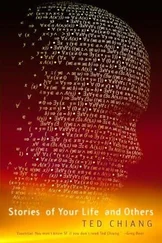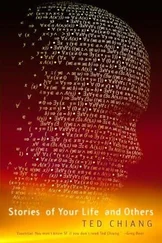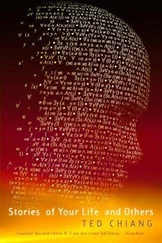‘No, Renee and I didn’t know each other then.’
And on and on.
Now they were convinced that he was competent and supportive, and were ready to release Renee into an outpatient treatment program.
Looking back, Carl was surprised in an abstracted way. Except for one moment, there hadn’t been any sense of déjà vu at any time during the entire ordeal. All the time he was dealing with the hospital, the doctors, the nurses: the only accompanying sensation was one of numbness, of sheer tedious rote.
2
There is a well-known ‘proof’ that demonstrates that one equals two. It begins with some definitions: ‘Let a = 1; let b = 1.’ It ends with the conclusion ‘a = 2a,’ that is, one equals two. Hidden inconspicuously in the middle is a division by zero, and at that point the proof has stepped off the brink, making all rules null and void. Permitting division by zero allows one to prove not only that one and two are equal, but that any two numbers at all – real or imaginary, rational or irrational – are equal.
2a
As soon as she and Carl got home, Renee went to the desk in her study and began turning all the papers facedown, blindly sweeping them together into a pile; she winced whenever a corner of a page faced up during her shuffling. She considered burning the pages, but that would be merely symbolic now. She’d accomplish as much by simply never glancing at them.
The doctors would probably describe it as obsessive behavior. Renee frowned, reminded of the indignity of being a patient under such fools. She remembered being on suicide status, in the locked ward, under the supposedly round-the-clock observation of the aides. And the interviews with the doctors, who were so condescending, so obvious. She was no manipulator like Mrs. Rivas, but it really was easy. Simply say ‘I realize I’m not well yet, but I do feel better,’ and you’d be considered almost ready for release.
2b
Carl watched Renee from the doorway for a moment, before he passed down the hallway. He remembered the day, fully two decades past, when he himself had been released. His parents had picked him up, and on the trip back his mother had made some inane comment about how glad everyone would be to see him, and he was just barely able to restrain himself from shaking her arm off his shoulders.
He had done for Renee what he would have appreciated during his period under observation. He had come to visit every day, even though she refused to see him at first, so that he wouldn’t be absent when she did want to see him. Sometimes they talked, and sometimes they simply walked around the grounds. He could find nothing wrong in what he did, and he knew that she appreciated it.
Yet, despite all his efforts, he felt no more than a sense of duty towards her.
3
In the Principia Mathematica, Bertrand Russell and Alfred Whitehead attempted to give a rigorous foundation to mathematics using formal logic as their basis. They began with what they considered to be axioms, and used those to derive theorems of increasing complexity. By page 362, they had established enough to prove ‘1 + 1 = 2.’
3a
As a child of seven, while investigating the house of a relative, Renee had been spellbound at discovering the perfect squares in the smooth marble tiles of the floor. A single one, two rows of two, three rows of three, four rows of four: the tiles fit together in a square. Of course. No matter which side you looked at it from, it came out the same. And more than that, each square was bigger than the last by an odd number of tiles. It was an epiphany. The conclusion was necessary: it had a rightness to it, confirmed by the smooth, cool feel of the tiles. And the way the tiles were fitted together, with such incredibly fine lines where they met; she had shivered at the precision.
Later on there came other realizations, other achievements. The astonishing doctoral dissertation at twenty-three, the series of acclaimed papers; people compared her to Von Neumann, universities wooed her. She had never paid any of it much attention. What she did pay attention to was that same sense of rightness, possessed by every theorem she learned, as insistent as the tiles’ physicality, and as exact as their fit.
3b
Carl felt that the person he was today was born after his attempt, when he met Laura. After being released from the hospital, he was in no mood to see anyone, but a friend of his had managed to introduce him to Laura. He had pushed her away initially, but she had known better. She had loved him while he was hurting, and let him go once he was healed. Through knowing her Carl had learned about empathy, and he was remade.
Laura had moved on after getting her own master’s degree, while he stayed at the university for his doctorate in biology. He suffered various crises and heartbreaks later on in life, but never again despair.
Carl marveled when he thought about what kind of person she was. He hadn’t spoken to her since grad school; what had her life been like over the years? He wondered whom else she had loved. Early on he had recognized what kind of love it was, and what kind it wasn’t, and he valued it immensely.
4
In the early nineteenth century, mathematicians began exploring geometries that differed from Euclidean geometry; these alternate geometries produced results that seemed utterly absurd, but they didn’t produce logical contradictions. It was later shown that these non-Euclidean geometries were consistent relative to Euclidean geometry: they were logically consistent, as long as one assumed that Euclidean geometry was consistent.
The proof of Euclidean geometry’s consistency eluded mathematicians. By the end of the nineteenth century, the best that was achieved was a proof that Euclidean geometry was consistent as long as arithmetic was consistent.
4a
At the time, when it all began, Renee had thought it little more than an annoyance. She had walked down the hall and knocked on the open door of Peter Fabrisi’s office. ‘Pete, got a minute?’
Fabrisi pushed his chair back from his desk. ‘Sure, Renee, what’s up?’
Renee came in, knowing what his reaction would be. She had never asked anyone in the department for advice on a problem before; it had always been the reverse. No matter. ‘I was wondering if you could do me a favor. You remember what I was telling you about a couple weeks back, about the formalism I was developing?’
He nodded. ‘The one you were rewriting axiom systems with.’
‘Right. Well, a few days ago I started coming up with really ridiculous conclusions, and now my formalism is contradicting itself. Could you take a look at it?’
Fabrisi’s expression was as expected. ‘You want – sure, I’d be glad to.’
‘Great. The examples on the first few pages are where the problem is; the rest is just for your reference.’ She handed Fabrisi a thin sheaf of papers. ‘I thought if I talked you through it, you’d just see the same things I do.’
‘You’re probably right.’ Fabrisi looked at the first couple of pages. ‘I don’t know how long this’ll take.’
‘No hurry. When you get a chance, just see whether any of my assumptions seem a little dubious, anything like that. I’ll still be going at it, so I’ll tell you if I come up with anything. Okay?’
Fabrisi smiled. ‘You’re just going to come in this afternoon and tell me you’ve found the problem.’
Читать дальше


